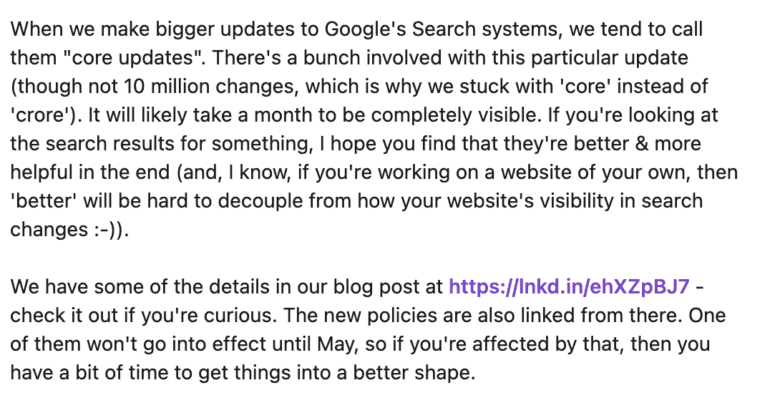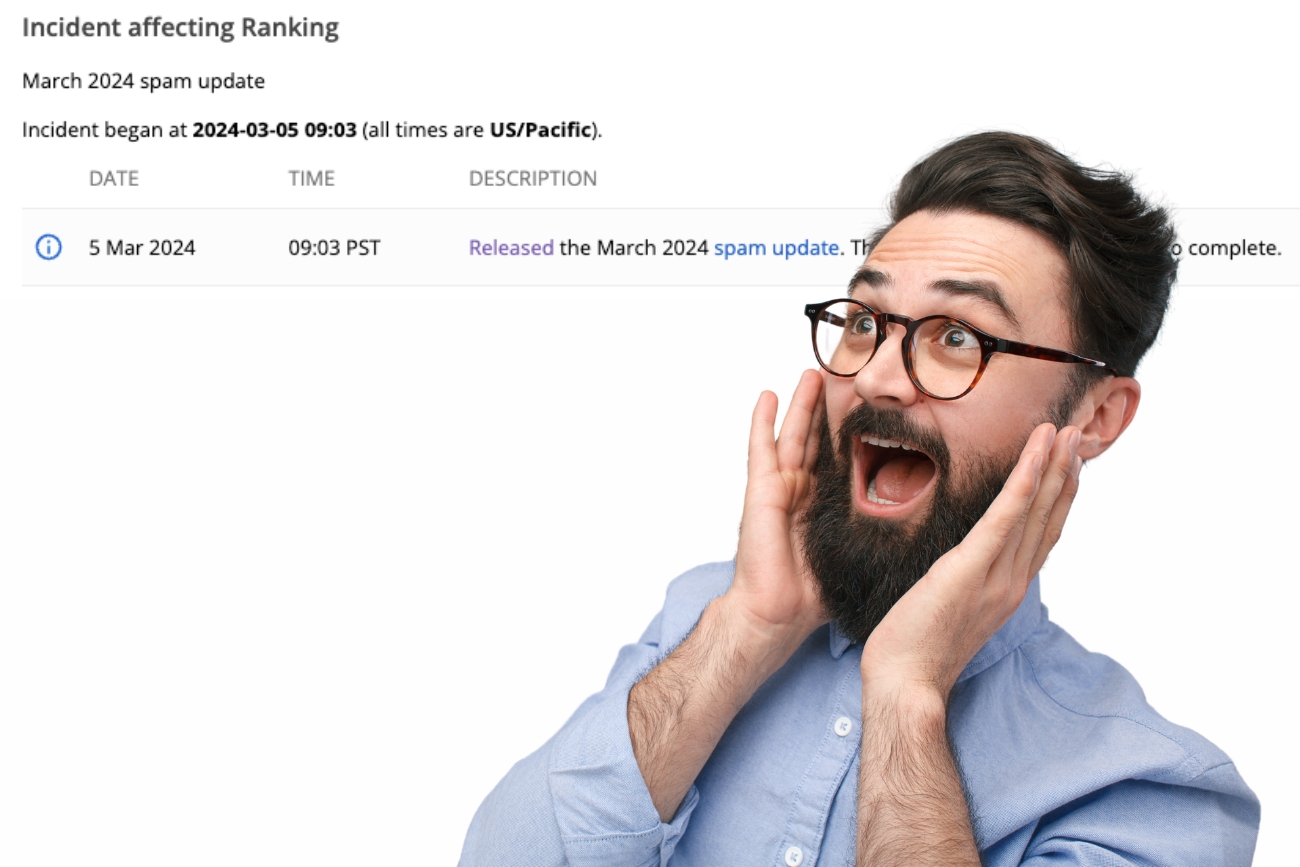Google announced on March 5th a core update aimed at cleaning up its search results.
The intention seems clear after several months of reports on how full the SERPs are of SPAM and how other entities like Reddit are dominating the search results. This announcement is undoubtedly a significant move.
A Core Update, this one for March 2024, is designed to show less content that may be perceived as created to attract clicks and that does not provide value to the user.
This Core Update may take up to a month to fully roll out, according to John Mueller.
Therefore, the results may not be immediately visible.

The news anti SPAM policy by Google
The new policies, which we present to you below, are designed to target practices that may negatively impact the quality of Google’s search results.
Google’s intentions are quite serious. Websites that violate its anti-spam policies may appear lower in the results or may not appear in the results at all.
They also warn that manual actions can be received through notifications in Search Console.
Expired domain abuse
This first measure is designed for all those expired domains that are reclaimed for very SPAM SEO strategies, for example, inserting casino content into a domain that had a lot of impact in the past as a health information site.
Large-scale content abuse
This second measure refers to what is commonly known as Programmatic SEO or SEO at scale. It pertains to the creation of a large number of pages with content that is not original, with the goal of manipulating search results without assisting users or providing them with useful information.
This detail is very relevant since Google has explicitly mentioned AI-generated content under a heading in this section.

Abuse of Link Building, site reputation, and coupon-type websites, known as Parasite SEO.
This policy is mainly aimed at websites where third parties publish low-quality content to attract traffic and improve their rankings. It’s a tactic very similar to Link Building. Websites with a multitude of coupons are often an example of this type of practice as well.
What this approach tries to address is maintaining the quality of website content by penalizing in the rankings those that include this type of content on their site.
They make a specific mention that this policy is not against ads that can be shown to the regular readers of a website, the so-called native ads.
In this respect, a two-month grace period will be given from the time the Google notice is received to rectify the issue.
